Online dating has opened up a world of romantic possibilities, but it also comes with real risks. From romance scams to harassment and identity theft, the need for vigilance in the digital dating scene is universal. In fact, according to a cybersecurity report, nearly half of people using dating apps have been targeted by scams, with 41% of those targeted falling victim. Criminals exploit dating platforms to con victims out of money and to harvest personal data. Given these realities, prioritizing safety for online dating isn’t just optional. It should be non-negotiable in your dating journey.
That’s why we’ve put together this guide on internet dating safety measures to protect your privacy, verify who you’re really talking to, and safeguard your heart. By following these online dating safety tips, you can enjoy the excitement of meeting new people while dating safety remains front and center.
Choose Platforms Wisely
Table of Contents
Not all dating sites are created equal. It’s crucial to evaluate a platform’s credibility and security before entrusting it with your love life. Here is how to find trustworthy dating sites that have a solid reputation and user base:
1. Research the app’s reputation
Before signing up, do some digging into the app’s background. A quick online search can reveal if the platform has a history of security issues. Here are some things to look out for to make sure the app you choose is designed to facilitate a safe online dating experience:
- Check if the app has ever suffered a security breach or leaked user data
- Look for how it responded to past incidents. Are there dating site rules against harassment in place? Does it take swift action against offenders?
- Prefer safe dating apps that partner with security organizations or use encryption to protect user information
- See if the platform has won any cybersecurity certifications or safety awards
2. Stick to trusted, well-known sites
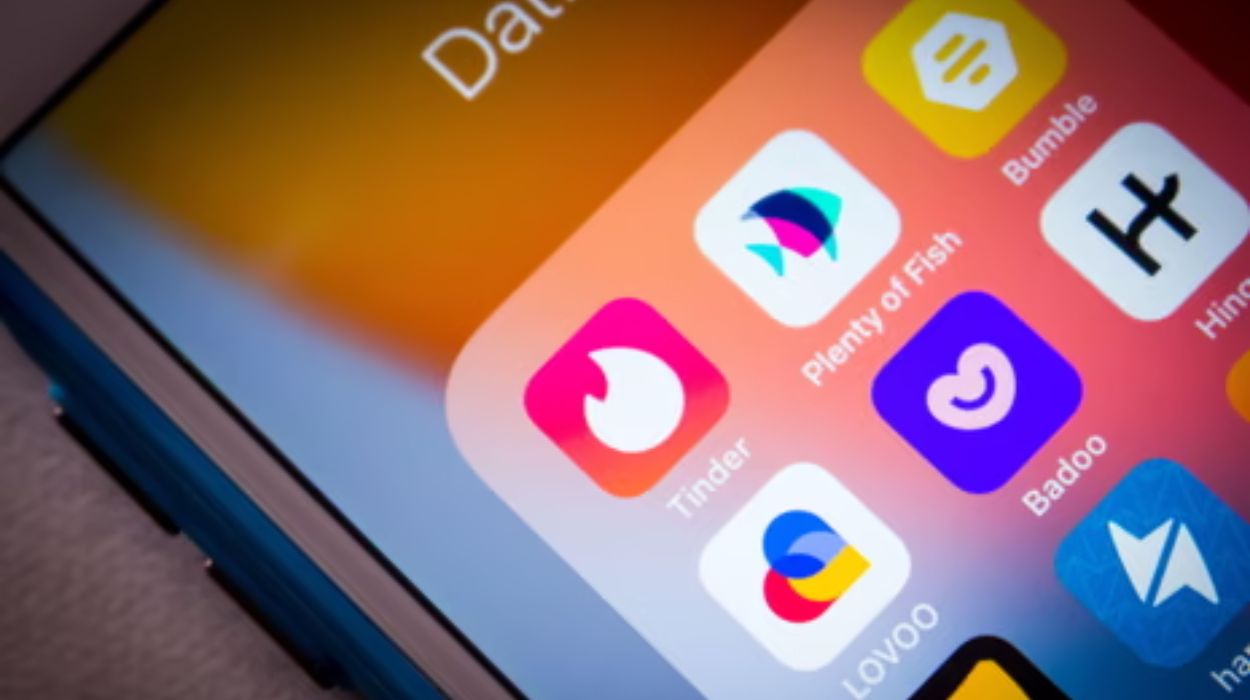
Popular dating services usually have more resources to invest in safety and fraud prevention. While no app is perfect, the big names often implement better security measures than obscure startups. To ensure safety for online dating, it’s wise to avoid sketchy sites that promise too-good-to-be-true matchmaking or have few user reviews.
- Choose apps with a large, diverse user base and positive reputation over time
- Avoid sites with lots of fake profiles or complaints about scams. These are clear red flags of apps infamous for catfishing
- Use app stores like Google Play, Apple App Store to download dating apps
- Look for verification badges, customer support, and clear community guidelines. Trustworthy dating sites often have these
Related Reading: 13 Best Online Dating Tips To Set You Up For Success
3. Examine security features and privacy tools
An app with built-in safety prompts shows it values dating safety for its users. Review what safety features an app offers before you commit to it.
- Photo verification: Does the app verify profile pictures to catch catfish? This can help with fake profile verification
- Control over visibility: Can you hide your profile or location with privacy settings?
- Reporting tools: There should be an easy way to flag suspicious or abusive behavior and get a prompt response
- Safety reminders: Some apps send reminders for safe messaging or offer in-app video calls. These are bonuses for a safer experience
4. Read the dating site rules and policies
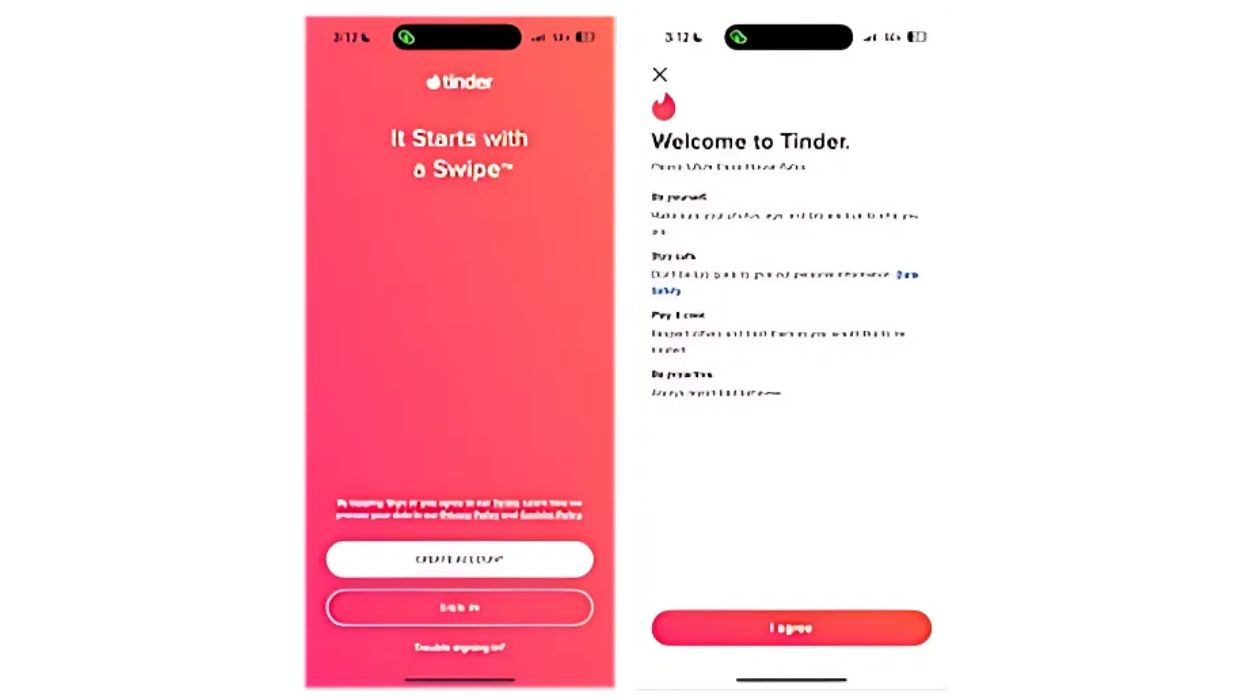
It might not be a thrilling read, but skimming the app’s terms and community guidelines can tell you how seriously the company takes safety.
- Look for policies on harassment, hate speech, and data privacy
- Check if the platform forbids users from soliciting money or sending explicit content. It’s one of the basic dating site rules that indicate a safer community
- See how your data is used. The privacy policy should say if your info could be sold or shared. If it’s murky or overly invasive, think twice
- Apps that require agreement to background checks or have strict verification for certain offenses show extra effort toward safety
- Most importantly, choose apps that align with your safety needs. For instance, some apps cater to those seeking more privacy or an inclusive dating safety focus for women or marginalized groups. Pick what works best for you
5. Favor platforms with safety partnerships
Many leading apps collaborate with safety organizations or offer educational resources on safe dating. Platform credibility increases when the company invests in keeping users informed and protected.
- Look for news of the app partnering with groups like the FTC, law enforcement, or NGOs for scam awareness campaigns
- Some apps have integrated panic buttons or date check-in features through third-party safety apps. These are great extra measures for ensuring user safety
- An app that frequently updates its security demonstrates it’s staying ahead of threats.
- If available, use the provided tools like in-app helpline support or safety quizzes. They’re there to enhance safety for online dating
Related Reading: The Art Of Online Dating: Navigating The World Of Apps And Websites
6. Listen to word of mouth
Finally, pay attention to what your friends or online communities are saying about a particular app.
- Ask friends which safe dating apps they’ve used and what their experience has been like
- Check forums or social media for recurring complaints
- Be wary of any platform that nobody you know has heard of, especially if it requires unusual permissions or personal data
- Remember, you can always switch platforms if one doesn’t feel secure. Your comfort and safety come first.
Secure Your Account And Device
Keeping your dating profiles secure isn’t just about the app. It’s also about safeguarding your device and accounts. You hold a lot of personal data on your phone and in your dating chats, making them juicy targets for hackers. Practicing good cyber hygiene is a must in ensuring safety for online dating. With a few proactive steps, you can drastically reduce the tech risks and focus on safe online dating without worry that your device or account will be compromised.
1. Use a strong, unique password
Don’t even think about recycling that old password from your Netflix account. For each dating app or site, create a strong password that’s unique to that account.
- Use a complex format for passwords. Mix uppercase, lowercase, numbers, and symbols. For example, “Rainbow_Horse_Candle_91” is far stronger than “password91”
- Aim for 12+ characters. A random phrase or sentence that only you know can work well
- Change your passwords periodically, and especially after any news of a breach for that app
2. Enable two-factor authentication
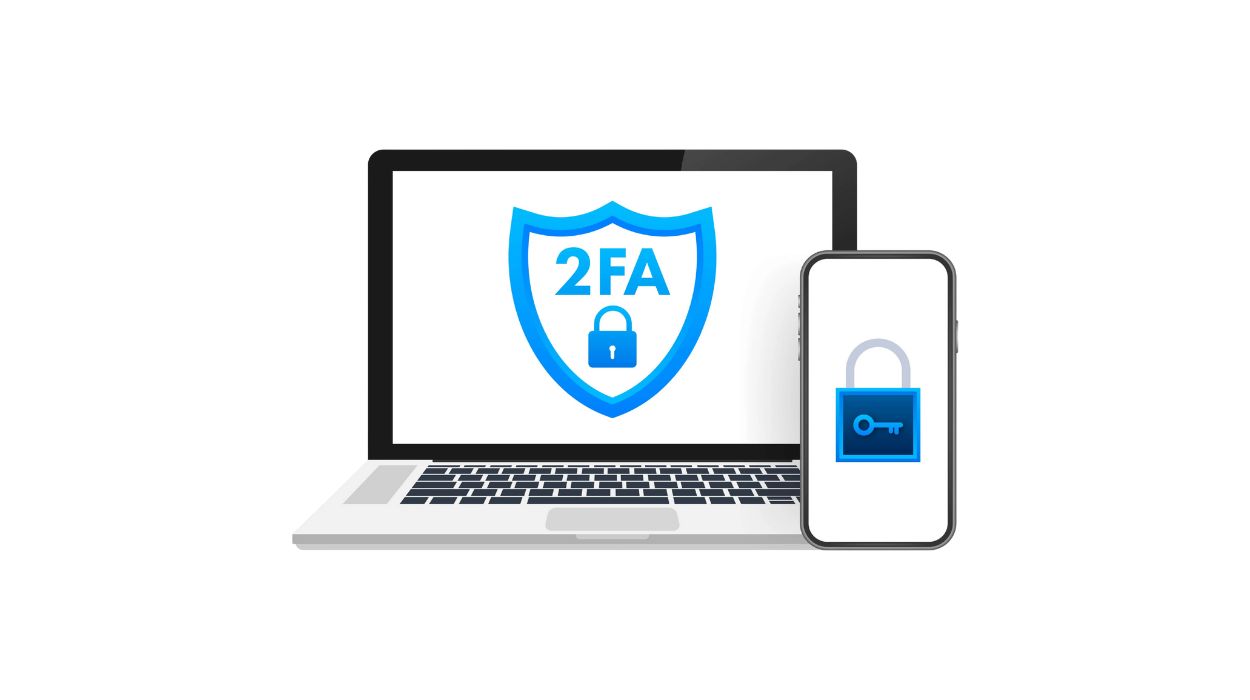
Take greater control of online dating safety with a simple measure like two-factor authentication. Yes, it’s one more tap when you sign in, but that beats having your profile stolen or impersonated. Here are some good practices you must follow:
- Use apps like Google Authenticator or Authy for more secure 2FA codes than SMS
- Save the backup codes provided when enabling 2FA in case you lose your device
- Only enter 2FA codes on the real app or site. Beware of phishing pages that ask for your code
- This simple step greatly improves safety for online dating accounts by keeping out intruders, even if they somehow get your password
Related Reading: Is Online Dating Easier For Women?
3. Beware of phishing and fake logins
Scammers might try to trick you into giving away your login details. Common ploys include sending emails or messages that appear to be from the dating app, urging you to “verify your account” or “resolve a problem” via a link. Those links often lead to fake catfishing websites that look legit but steal your credentials. A classic phishing ploy! When in doubt, navigate to the dating site manually or use the official app to check your account. Protecting yourself from these tricks is vital for internet dating safety. Remember,
- Official emails from a dating service won’t come from weird Gmail addresses or have lots of typos
- If an email or text claims an issue with your profile, go directly to the app instead of clicking the provided link
- Avoid logging in on public Wi-Fi where attackers can intercept data. If you must, use a VPN encryption to secure your connection
- Keep your device’s browser and security software up to date
4. Protect your devices with cybersecurity tools
Your phone or laptop is the gateway to your dating life. Secure it.
- Antivirus/malware scanner: Install one and keep it updated. It can stop viruses or keyloggers that might sniff out your login creds
- Device updates: Enable automatic updates on your phone and computer. Patches for iOS, Android, Windows, etc., often address security vulnerabilities that hackers exploit
- App permissions: Be mindful of app permissions; dating apps don’t need full access to your contacts or files. Only grant what’s necessary to minimize exposure
- Secure network: Use a secure network or VPN encryption, especially if you’re on public Wi-Fi while swiping or messaging. This prevents eavesdropping on your data
5. Log out and use screen locks
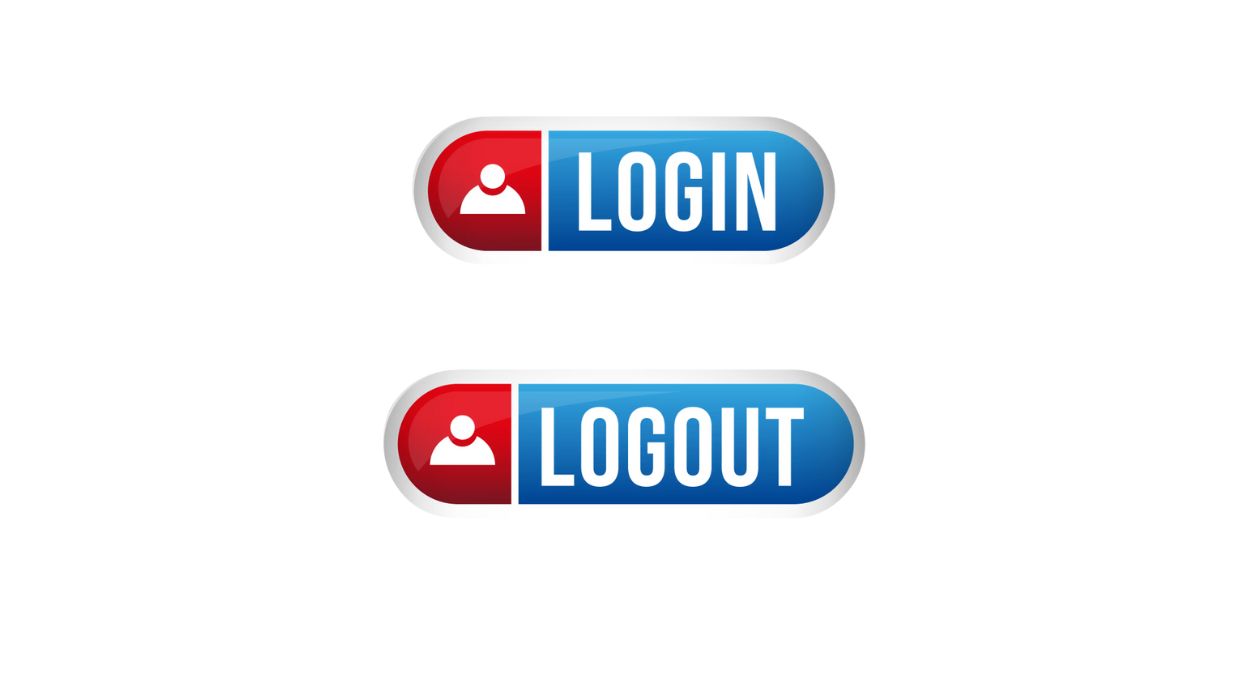
It’s easy to stay logged into your dating apps for convenience, but consider logging out when not in use, especially on shared devices. It is a simple habit that bolsters safety for online dating accounts. Here are some good practices you must adopt:
- Auto-lock: Set your phone to auto-lock after a short period of inactivity. Don’t disable this feature. It’s a first line of defense
- Logout on web: If you use dating sites on a public or work computer, always log out and close the browser when done.
- No auto-save on public devices: Avoid saving passwords or using “remember me” on any device that others might use
- Remote wipe: Enable the ability to locate or wipe your phone remotely, through Apple’s Find My iPhone or Android’s Find My Device, in case of loss
Related Reading: How to Make an Effective Online Dating Profile
Protect Your Identity And Privacy Online
In online dating, protecting your identity is just as important as protecting your heart. You want to get to know someone new, but not at the cost of exposing sensitive personal details too soon. A clever match or a scammer in disguise can often find out a lot about you with minimal info, thanks to the internet’s endless data trails. To maintain safety for online dating, make sure:
1. Limit what you share on your profile
Your dating profile can feel like a resume for romance, but it shouldn’t read like your biography or a Facebook profile. Stick to basics and fun facts. Avoid oversharing personal data that a bad actor could misuse.
- Use just your first name or a nickname on the app. There’s no need to drop your full name up front
- Don’t list contact info such as phone, email, or social media handles in your public profile. Real matches can message you within the app.
- Skip highly identifying details. For example, instead of saying “VP at XYZ Bank,” you can say “finance professional”
- Be vague about location. You can mention the city, but not your neighborhood
2. Use photos wisely
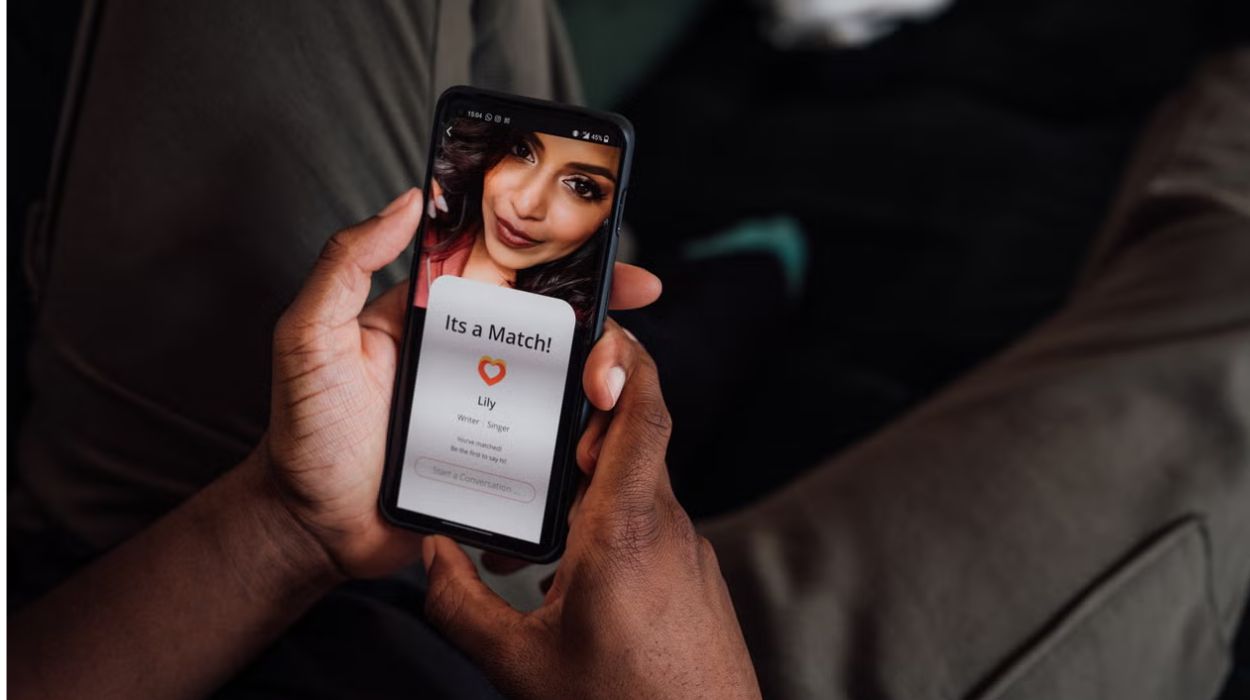
We all want to look our best in profile pics, but be strategic: use photos that don’t give away too much about your life. That means avoid pictures that show your home address, office building signage, or even rare landmarks that pinpoint exactly where you are. Basically, think of your dating photos as snapshots of you, not your whole life story.
- Try to use pictures that are not easily found elsewhere online. This thwarts simple reverse image searches linking back to you
- Remove or blur any visible street addresses, company logos, or school names in the background of your photos
- Check and strip the photo metadata before uploading. Some apps do this automatically, but not all
- If you’re part of a vulnerable community, such as LGBTQ+ in a conservative area, consider anonymous photos
Related Reading: How To Date Online — 21 Tips To Set You Up For Success
3. Delay linking social media or contact info
That charming match doesn’t need to follow you on Instagram or have your phone number right away. Keep communications on the dating platform until you’re comfortable and have vetted the person. Public social media profiles can reveal a trove of info—your full name, friends, routine, and more. Scammers might use that to deepen a con or thieves for identity theft prevention failure. Don’t rush to connect every aspect of your digital life.
- If a match asks for your Instagram or Snapchat immediately, politely say you prefer to chat on the dating app first. A genuine person will understand boundaries
- Avoid sharing your last name, personal email, or workplace in early chats. Even mentioning a niche job title can make it easy to find you on LinkedIn
- Use the dating app’s call or video feature, if it has one, instead of giving out your phone number for an early phone call
- Remember that catfishers often use social engineering. The more they know about you, the easier it is to manipulate. Keep your cards close
4. Do a reverse image search on matches’ photos
Protecting your identity also means doing a bit of homework on the people you match with. If you suspect anything odd about someone’s profile, or even if you’re just curious, consider using Google’s reverse image search on their profile pictures. This can help you spot fake profiles or stolen photos.
“If there are no photos, it’s a red flag. If there is only one photo, and they look like a hot model, it’s a red flag.”
—Julie Spira, dating advisor
A quick reverse image lookup might reveal the photo’s real source. It’s a handy catfishing detection trick that takes seconds and can save you from months of being duped.
- Take a screenshot of their pic and crop to just their face. Search it on Google or TinEye. Any matches on other sites? That’s potential trouble
- No hits doesn’t guarantee they’re legit. Maybe the photos aren’t widely posted, but hits to unrelated names or multiple profiles. These are both big red flags
- Some apps now offer integrated reverse image search or at least Google Lens capabilities. Use this feature if available
- If you find the images are stolen, cut off contact and report the profile
Related Reading: 20 Valuable Tips For A First Date After Meeting Online
5. Use a secondary phone number or email
One smart privacy trick is to compartmentalize your contact info. Instead of giving out your real phone number or main email, use alternatives for dating. This way, if things go south or you start getting spam, your primary contacts remain untouched. It also prevents someone from using your number to look up personal details. Maintaining this layer of separation is excellent identity theft prevention and gives you control over who gets into your day-to-day life.
- Use Google Voice or textfree apps to set up a free number to call or text outside the app
- Use an alternate email. Something simple like firstname.dating@____.com. Don’t include your full name in the address
- Definitely avoid using your work email or number. That can risk your professional and personal life if misused
- Having these buffers lets you drop a connection instantly if it turns weird, preserving your peace of mind and safety for online dating communications
6. Keep personal data out of chats until trust is built
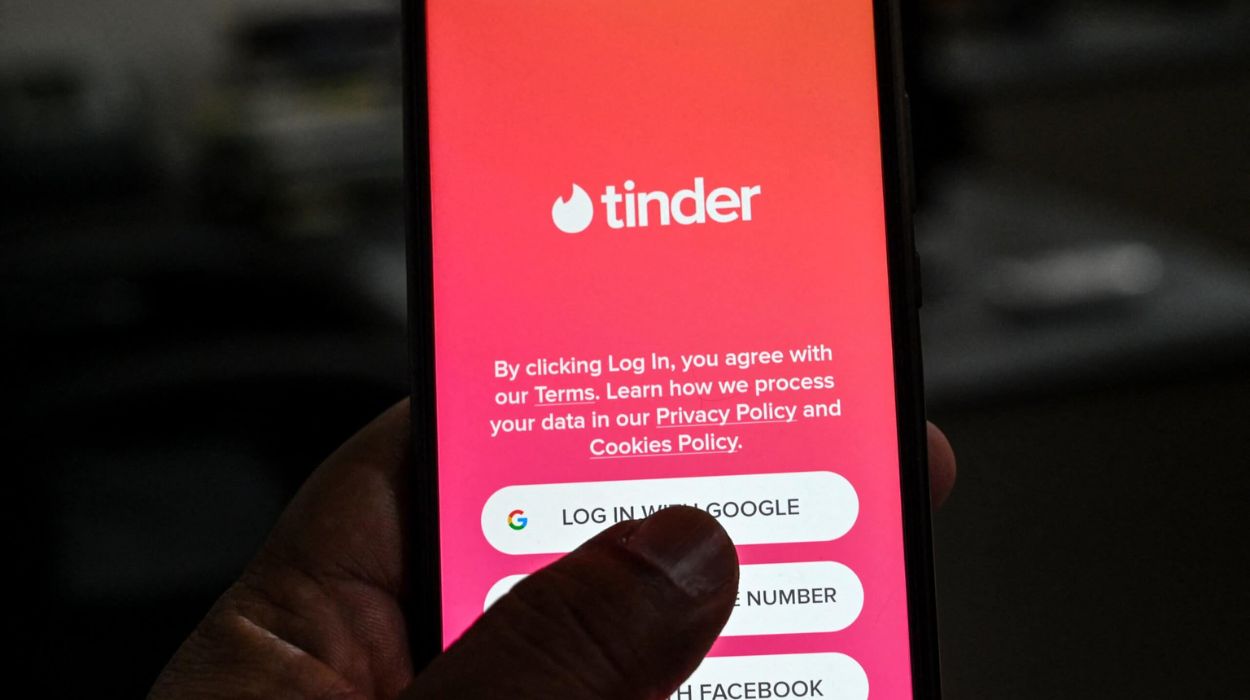
Even once you’re chatting comfortably, remember that a new online acquaintance doesn’t need to know everything yet. Be cautious about sharing details like your full birthday, your mother’s maiden name (yes, people do casually ask this sometimes!), or any account numbers, of course. Romance scammers often phish for personal info under the garb of innocuous getting-to-know-you questions.
- If someone presses for, say, your last name or Facebook profile early on, you can respond with humor or a gentle boundary: “Haha, maybe if you’re lucky, you’ll get to learn my last name on the second date 😋.”
- Watch out for sob story or scam tactics in which they might also try to get your personal details indirectly. For example, “I want to send you flowers, what’s your address?” Sweet, but potentially a red flag if too soon
- Guard info like your social security number, obviously, but also subtle things like the exact street you grew up on, your pet’s name, etc., until you truly trust someone
Related Reading: 18 Online Dating Red Flags That Should Not Be Ignored
Safely Transition From App To Chat
So you’ve been chatting on the app and feel a connection. Exciting! The next step might be moving off the dating platform to text, call, or meet up. But how and when you transition is critical to maintaining safety. Here is how to safely transition from swiping to chatting on the phone or in person.
1. Take your time
There’s no rush to move to texting or email. A trustworthy match will respect that you want to keep conversations on the dating app for a bit. Use this stage to gauge the person’s intentions.
- Many apps have video/audio call features now. Utilizing those while still on the platform is safer for a first virtual date than jumping to third-party apps
- If your match refuses to converse on the app and is pressuring you to move to a private channel, that’s a potential red flag. Legit people might suggest it but won’t demand it aggressively
- Scammers often claim phone issues or say, “I’m deleting this app, text me”. Don’t fall for it without good reason. Keep things where reporting mechanisms exist
- When you do decide to transition, it should be mutual and when you feel comfortable, not just because they asked on day one
Related Reading: Online Dating: 8 Relationship Tips To Make It Work For You
2. Verify with a video call before meeting
Before you invest time in an in-person date or even a deep emotional connection, verify identity through a quick video chat.
Use video or voice calls as an identity check. If they make excuses or refuse, it is best to err on the side of caution.
—Leyla Bilge, Director of Scam Research Labs
There have been cases of scammers faking video by using pre-recorded clips, so pay attention. But generally, a live conversation is hard to fake and will greatly increase your confidence that this person is real. Here’s how to go about it:
- Propose a quick video call. If they’re real and interested, this shouldn’t be a big ask. You can frame it playfully: “Wanna make sure you’re not a cleverly disguised robot? 😄 Let’s video chat for a few minutes.”
- If they do video chat but something feels off, like their face not moving naturally, strange delays, or voice mismatches, it could be a manipulated video
- If they continually avoid video or phone calls using excuses like “camera broken” or “too shy” or “too busy”, consider that a red flag that they may not be who they claim to be.
3. Use encrypted messaging apps
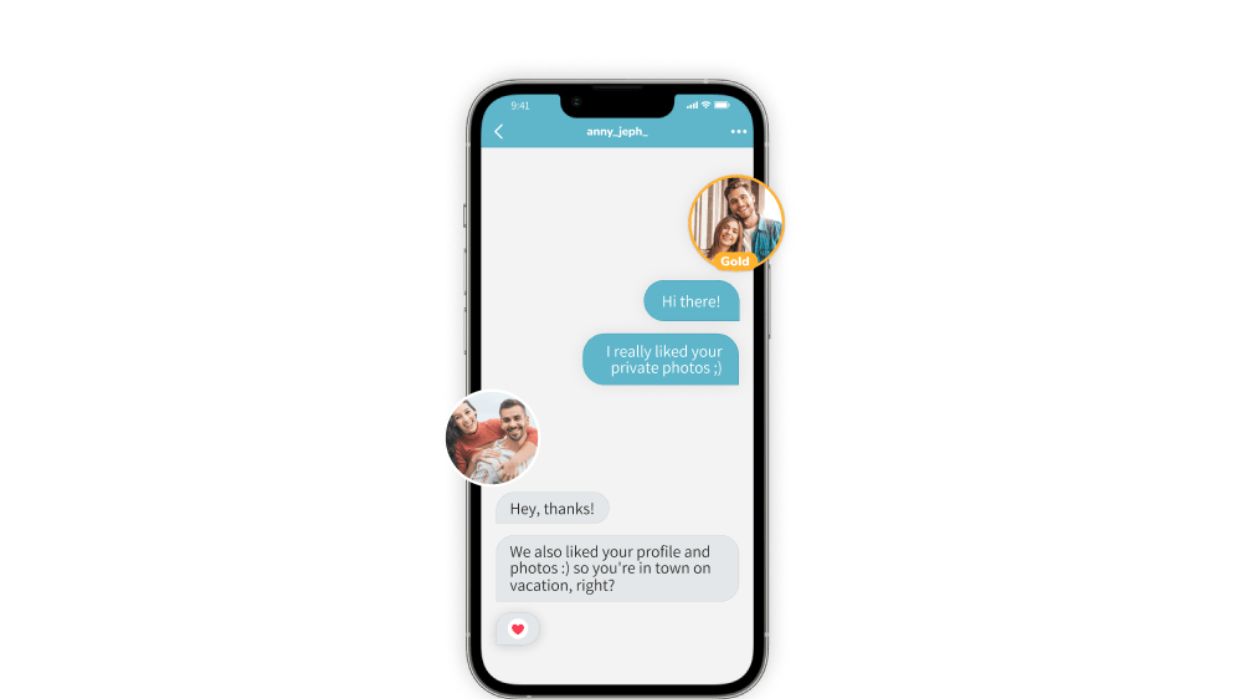
When you both agree to move off the dating app, choose a safe messaging platform that supports end-to-end encryption. Apps like WhatsApp, Signal, or Telegram (secret chats) keep your messages private and secure from eavesdropping.
- Use apps like WhatsApp or Signal to keep your messages private. Signal even allows you to register with a Google Voice number if you want an extra layer of anonymity
- Whichever you choose, check the default settings and customize for extra privacy
- If you prefer not to share your personal number at all yet, consider apps like Telegram, where you can exchange usernames instead of numbers
- Encrypted apps also often allow easy blocking and reporting if things go awry, preserving a bit of that controlled environment you had on the dating app
Related Reading: The Dangers Of Online Dating In 2025 And How To Avoid Them
4. Protect your personal contact info
Even after shifting to another chat app or phone, continue to guard your personal data in the initial talking stages.
- If you use Facebook Messenger or a similar app, be aware it might show your full name by default. This is why many prefer using apps like WhatsApp
- Remind yourself it’s not about being cagey. It’s about safety for online dating transitions
- A decent person will understand that you value your privacy
- On the flip side, respect the other person’s boundaries too. If they prefer to stay on the app or use a specific contact method, work with that until mutual trust grows
5. Watch for red flags during the transition
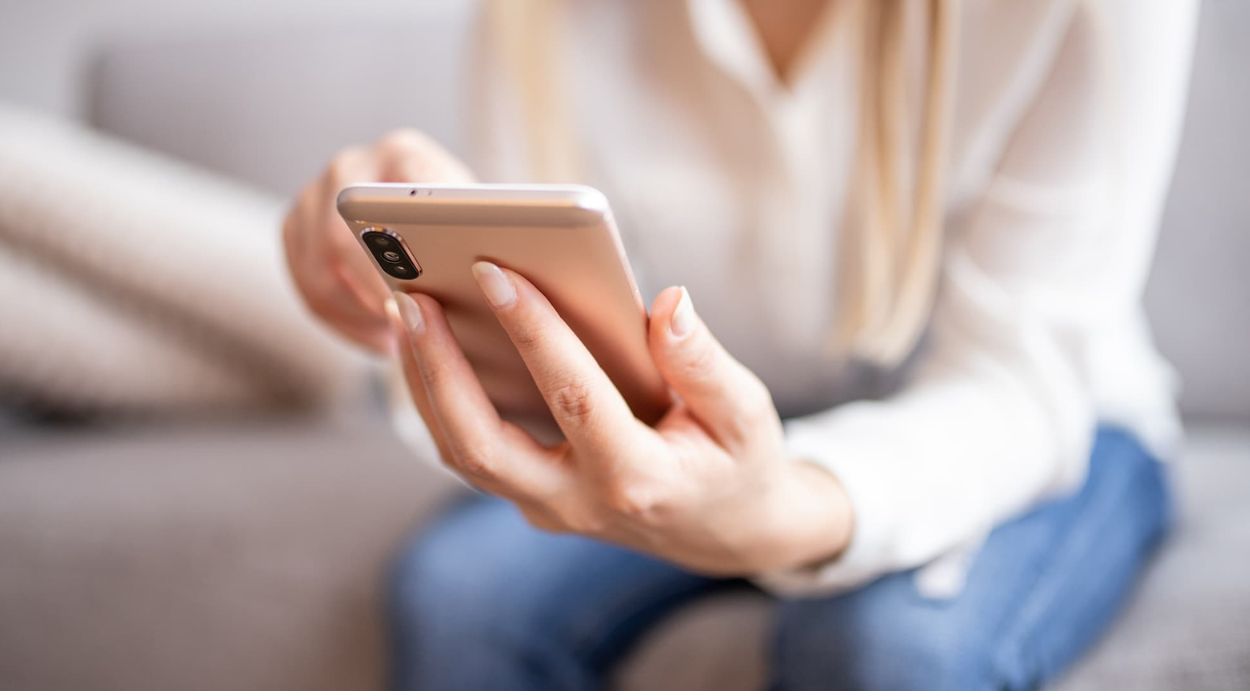
Often the moment of moving off-app is when scammers drop their guard or slip up. Pay attention to any red flags during this phase.
- Did their style of communication change suddenly on text versus on the app? Do they avoid certain types of interaction, like never agreeing to a phone call? These are obvious red flags, and you’d be better off cutting your losses
- If they send you a file or photo link out of the blue, be cautious. It could contain malware or be an attempt to phish you
- Someone insisting on moving to an obscure app or method of communication such as insisting that you join some unfamiliar chat site could be trying to lure you where phishing protection is lower. Stick to well-known, secure apps
- If someone pressures you to take things forward too quickly, that’s a red flag too
- If anything in the transition feels off, you’re allowed to pause or even cut contact
Related Reading: 30+ Jaw-Dropping Statistics About Dangers Of Online Dating
Meeting In Person—Dos & Don’ts
Meeting face-to-face is a big milestone, and it should be exciting, not dangerous. By following some fundamental dating site rules for first dates, you can greatly reduce risk and focus on having fun. Below is a list of dos and don’ts when meeting someone from an online platform for the first time. Keep these in mind to protect your physical safety, and you’ll feel more confident heading into that coffee or dinner.
| Dos for a Safe First Meetup | Don’ts to Avoid Risk |
|---|---|
| Meet in a busy, public place. | Don’t meet at private or secluded spots. |
| Inform a friend or family of your plans. | Don’t keep your date a secret. |
| Arrange your own transportation. | Don’t rely on your date for rides. |
| Stay sober and alert. | Don’t overindulge or leave drinks unattended. |
| Trust your instincts and have an exit plan. | Don’t ignore red flags out of politeness. |
Identify Catfish and Romance Scams
Romance scammers and predators often follow similar scripts. They are skilled at manipulation, but they also tend to make predictable moves if you know what to watch for. By learning the common red flags, you can spot trouble early and avoid being the next victim of a sob story scam or worse. Practising safe online dating or looking for dating safety tips before putting yourself out there doesn’t mean you’re paranoid. It’s just a way of recognizing when something doesn’t line up:
1. Requests for money or financial help
This is the biggest red flag in the online dating world. No matter how touching the story, someone you’ve never met or met recently asking for money is almost certainly a scam. They might spin a tale: an emergency surgery, a stranded traveler, a business deal gone wrong, even unpaid “space parking tickets”. It typically comes after they’ve gained your sympathy with a dramatic story. Don’t fall for it. Remember,
- Never send money or gifts to someone you’ve met online and haven’t met in person, no matter how convincing their plea
- Be wary of any mention of cryptocurrency investment opportunities, random inheritance, or needing help with bank issues. These are common scammer themes
- They might not ask outright. Sometimes they drop hints, hoping you’ll offer. For example, “I wish I could visit you, but I can’t afford the flight…”. Don’t bite
- As a rule, love and money should not mix early on. If it comes up, that’s your cue to exit the conversation
2. A profile that is too good to be true
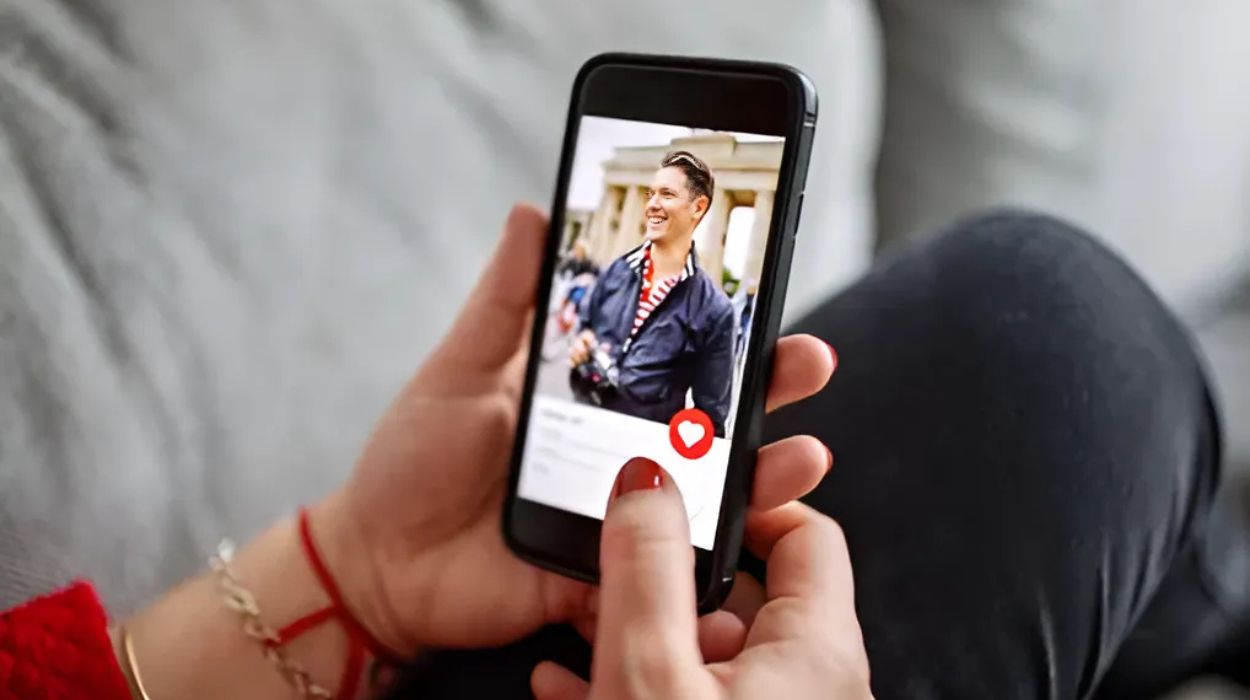
Did you match with someone who looks like a supermodel, claims to be a wealthy philanthropist-astronaut, and adores everything about you after one chat? Hate to break it to you, but if it’s too good to be true, it probably is. Real people have flaws and nuances. Scam profiles often seem perfect or hit fairy-tale notes. Use that reverse image search and trust your gut.
- Profile red flags: A profession that implies wealth, such as an engineer on an oil rig, an international businessperson, combined with an exotic location or travel, so they can’t meet easily
- App authenticity check: Look for inconsistencies. One photo shows a 25-year-old, another looks 40? Text in profile doesn’t match what they say in chat? They’re likely faking
- Lovebombing: If the person showers you with compliments immediately and calls you “soulmate” or “my love” before even meeting, it’s a love bombing tactic to lower your guard
- Always question: Would a legitimate, stable person really move this fast? Probably not. Feel free to quiz them gently on details. Scammers trip up when facts get too specific
Related Reading: 15 Key Disadvantages Of Online Dating
3. Inconsistencies and vague answers
Pay attention to the details in what your match says. Do their stories add up? These people often operate with a script and you can easily outsmart a scammer with the right questions. Genuine people have consistent backstories. Catfishers have a hard time keeping track of their lies. Don’t ignore inconsistent or vague answers, as they often herald bigger lies ahead.
- If everything they say is sweet nothings and they never answer your actual questions, they might be copy-pasting from a script to dozens of people
- Ask something unexpected and see if they respond meaningfully. Scammers often can’t because they’re juggling many victims and don’t truly listen
- If your conversation lacks the normal back-and-forth of getting to know someone, and they always seem to steer it toward romantic fluff or certain topics like money, that’s a glaring red flag.
4. Avoids video calls or in-person meetups
We touched on this earlier: if your online interest repeatedly avoids proving they are who they say, by never agreeing to a video call, or constantly postponing meetups, alarm bells should ring. Catfishers and scammers hide behind screens. Watch out for:
- Excuses like, “I’m working overseas/on an oil rig/in the military abroad, so I can’t meet.”
- Anyone who sets a long-term future meetup but always has a reason it can’t happen soon
- Refusing to get on a video call or a video call that’s too grainy or where something feels off
5. Rapid romance and pressure to commit
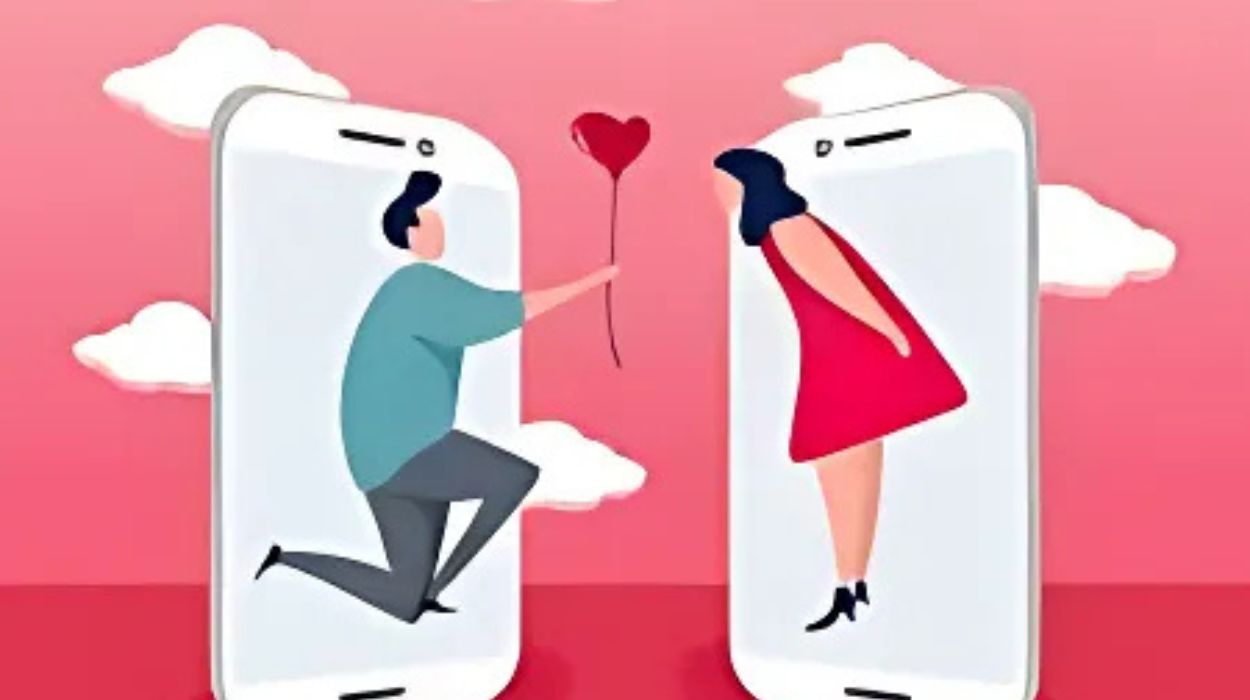
Online connections can feel intense quickly. Sharing life stories through late-night texts has a way of accelerating intimacy. But be cautious of love bombing. If your match is declaring love or very strong feelings within a week or two, that’s often a manipulation tactic. Healthy relationships can spark fast, but they still respect boundaries and time. Over-the-top proclamations, especially if combined with any other red flags, signal you should tap the brakes. Here are the most common ones:
- They might claim, “I’ve never felt this way before”, alarmingly soon. Or talk about marriage/kids out of nowhere. It’s flattering, but also suspicious
- Pressuring you to leave the app or taking things forward too soon. Don’t ever feel guilty for wanting to take things slower or keep your profile up until you’re certain
- Scammers love to create a false sense of duty. They might fake a crisis after wooing you so you feel obliged to help your “new love.” Classic con move
- Keep an eye on your own emotional state. If you’re feeling overwhelmed or that it’s “too perfect,” bring it up. A scammer will balk or deflect. A genuine person will understand
Related Reading: Online Dating Advice – 23 Important Tips
6. Sob story after sob story
One subtle red flag is the person who always seems to be in some personal crisis. Early on, they might drop hints of tragedy: a widower, a child with an illness, stuck in a foreign country, and so on. While, of course, real people have tragedies, scammers use fabricated sob stories to hook empathetic targets. They create scenarios to later justify asking for help. Here are some obvious examples:
- They mention being a lonely single parent who can’t afford their kid’s surgery. It’s bait for you to offer help. Don’t. Scammers know many kind people can’t resist a story like that
- Or they claim their wallet was stolen while traveling, and they’re embarrasse,d but could you possibly loan $1000 until they’re home? Also a scam classic
- Some even fabricate medical emergencies or pretend to be stuck abroad without access to funds
- The variety is endless, but the common factor is asking you to solve it financially or with sensitive info
- The moment money, gifts, or any financial detail enters the chat, reevaluate everything
Emotional Safety And Boundaries
It’s not just scammers that can harm you online. The process of dating itself can take a toll on your emotional well-being. That’s why safeguarding your emotional safety is a key part of online dating. It’s easy to get caught up in swiping fatigue, rejection, or, conversely, in rushing into intimacy because digital chat encourages fast sharing. Online dating should not feel like a second job or a source of constant anxiety. If it does, it’s time to step back. Recognize signs of dating burnout and digital fatigue. Here’s what you need to do to keep your mental and emotional health intact while navigating the dating scene
1. Set clear personal boundaries

Before you even create a profile or match with someone, take a moment to define your boundaries. What are you comfortable with, and what is off-limits for you? This includes how quickly you share personal information, physical boundaries for meetups, and emotional boundaries like how much time you’ll devote to chatting each day. By setting these boundaries early, you can communicate them or enforce them as needed without guilt. Here’s how you can go about it:
- Make a list, even if just in your head, of non-negotiables. For example, “I won’t respond to messages after midnight,” or “I won’t get intimate too soon.”
- If someone crosses a boundary, address it. You have the right to say, “This doesn’t work for me.”
- Healthy people will respect your limits. If they don’t, that’s a cue to step away
- Enforcing boundaries might mean losing a match but that’s actually a win for your emotional safety
- Remember, boundaries can adjust over time. But you are in control of adjusting them, not someone else pushing you
Related Reading: 10 Basic Netiquette Rules Everyone Should Follow
2. Take breaks to avoid dating burnout
Swiping endlessly and going on chat after chat can be exhilarating, until it’s not. Online dating burnout is real. It can make you jaded, exhausted, and lower your ability to spot red flags or present your best self. If the apps start feeling like a chore or rejection is hitting hard, give yourself permission to take a break.
- Watch out for digital fatigue signs such as scrolling without interest, feeling dread or annoyance when a message pings, or feeling upset after minor interactions. These suggest it’s time to unplug for a bit
- Use that time to reconnect with friends, hobbies, and non-dating life. It reminds you that your whole worth isn’t tied to finding a partner. You’re a complete person already
- When you return, you’ll likely have more enthusiasm and clarity. You might even revamp your profile or approach with that refreshed mindset
- Taking breaks is also a good strategy if you find yourself slipping into unhealthy patterns like obsessively checking if someone read your message
3. Don’t ignore emotional red flags
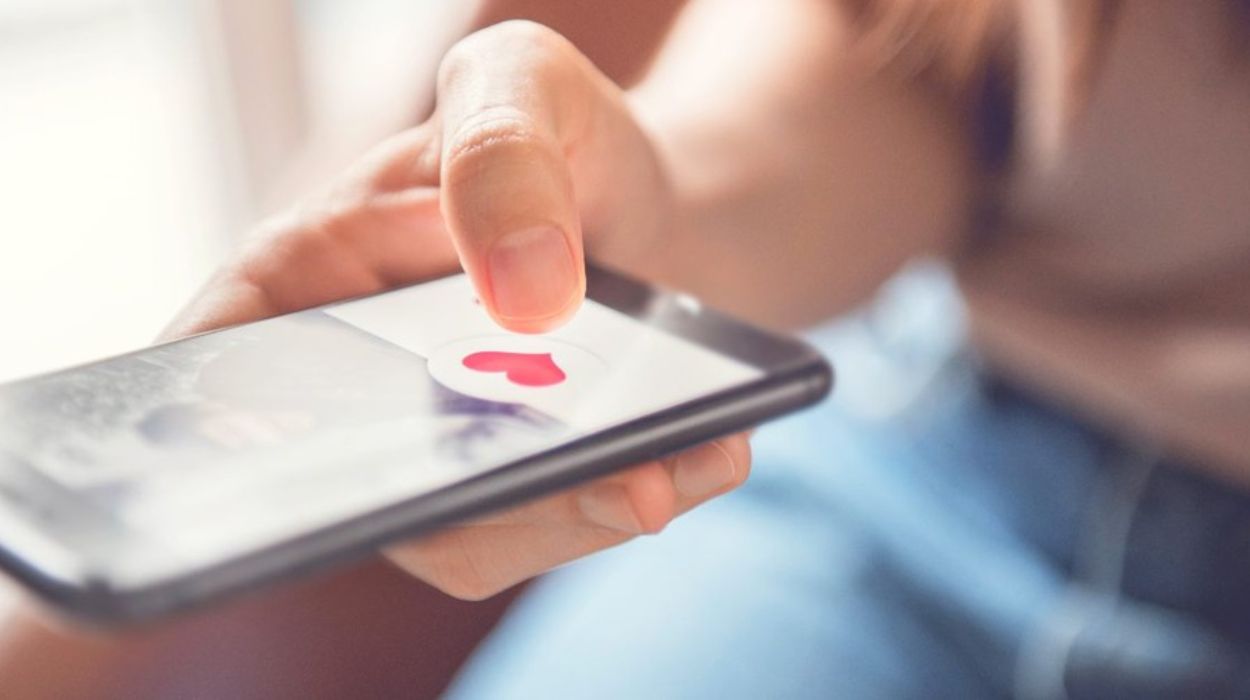
When talking about online dating safe practices, concrete red flags like money requests are emphasized a lot but emotional red flags are just as important. How does this person make you feel during interactions? Do you feel respected and heard, or do you feel belittled, anxious, or confused? Pay attention to signs of potential emotional manipulation or abuse.
- Emotional abuse can start small. Negging comments, pushing your boundaries “as a joke,” or making you feel guilty for holding to your comfort levels. These often escalate later
- If you notice these signs, you can choose to address it or simply disengage. You’re not obligated to rehabilitate strangers on the internet
- Ghosting is an option if someone is really overstepping and making you feel bad. In online dating, sometimes silence is the clearest message
- On the flip side, honor others’ emotional boundaries too. If someone says they need a day before meeting or they don’t like certain banter, respect it
Related Reading: 11 Best Background Check Sites for Dating in 2025
4. Know when to log off
Perhaps the most important emotional safety rule: listen to your gut. If at any point you feel overwhelmed, unsafe, or simply unhappy because of online dating, it’s okay to log off. For an hour, a day, or however long you need.
- Don’t worry about “missed chances.” If an awesome match messages you while you’re on a break, they’ll be just as awesome when you return. Rushing or forcing yourself when you’re drained will likely lead to mistakes or settling
- Consider talking to friends or a therapist if dating has you in a funk. Sometimes an outside perspective can recalibrate your approach or just provide the emotional support you need
- Emotional boundaries also mean ending things if they aren’t right. You might feel bad about hurting someone’s feelings, but staying in a toxic or lukewarm connection out of obligation helps no one
- Ultimately, trust your instincts. If your gut tells you, “This isn’t OK”, believe yourself and act accordingly

What To Do If Things Go Wrong
Even with all the precautions in the world, you might still encounter a bad apple or a dangerous situation. That’s not your fault. What matters is how you respond. Whether you suspect you’ve been scammed, face harassment, or have had a scary in-person experience, there are steps you can take after things go wrong to protect yourself and potentially others. Knowing ahead of time what to do if things go wrong can turn a potentially overwhelming crisis into a managed situation. Here’s your emergency checklist for safety for online dating mishaps:
- Cut off contact immediately: The moment you sense danger or realize you’re dealing with a scam, block the person on the app, your phone, and social media. Don’t argue, explain, or look for closure—just disengage. If it’s an in-person date, leave quickly and calmly. Removing their access to you is step one in protecting yourself
- Don’t respond to new attempts: Scammers or harassers may come back from different numbers, emails, or profiles. Resist the urge to respond or “catch them out.” Block new attempts on sight and avoid reopening the door to manipulation
- Secure shared accounts and data: If you gave them access to any accounts (like Netflix, photo storage, or shared files), revoke that access and change passwords immediately. Treat it like a digital break-in. You need to lock all the doors behind you
- Document and report the incident: Take screenshots of conversations, emails, or suspicious transactions while they’re still available. Report the user through the app’s built-in tools and, if money or threats are involved, to consumer agencies or local police. Evidence now makes action possible later
- Contact authorities if needed: For financial scams, reach out to your bank, credit card company, or agencies like the FTC and FBI’s IC3. For harassment, cyberstalking, or assault, law enforcement and hotlines can provide protection and support. Reporting also helps protect future victims
- Secure financial and personal information: Change all potentially compromised passwords, pins, and security questions. Alert your bank if you sent money or exposed account details, and consider placing fraud alerts or credit monitoring. If threatened with sextortion, never pay. Report it instead.
- Act quickly on payments: If you sent gift cards or wire transfers, contact the issuing company right away. Sometimes transactions can be reversed or blocked if you catch them in time. Acting fast can stop the scammer from cashing out
- Lean on trusted support: Talk to a friend, family member, or support group. Opening up breaks the isolation and shame that scammers or abusers rely on. Even a simple “this happened to me” can lighten the emotional burden and give you perspective.
- Use professional or community resources: Organizations like SCARS (for scam victims) or RAINN (for assault survivors) exist to support people in these situations. Hotlines, forums, and therapists can provide guidance, reassurance, and coping strategies
- Inform platforms and communities: Reporting a scammer helps the app remove them, but you can also warn others by sharing your experience on forums or reviews. Done carefully, your story can keep others from falling into the same trap and pressure platforms to improve safety features
- Reset and recover: After handling the immediate crisis, take time for yourself. Step back from apps if needed, focus on hobbies, friends, or self-care, and remind yourself the incident wasn’t your fault. When you’re ready, return to dating with stronger boundaries and sharper instincts
FAQs
The main risks include romance scams, catfishing, identity theft, financial exploitation, stalking, and emotional manipulation. Scammers often build trust before asking for money or sensitive details. Fake profiles can also steal your photos or personal data. Staying safe means recognizing red flags early, like requests for money, avoiding video calls, or pressure to move conversations off the app.
Look for warning signs such as overly polished photos, vague bios, refusal to video chat, or inconsistent details in their story. Run a reverse image search to check if their photos appear elsewhere. Genuine users engage naturally, while scammers often push conversations toward money or personal information. Trust your instincts. If something feels “off,” it usually is.
Avoid oversharing personal details like your home address, workplace, financial information, or daily routines. Don’t link social media accounts too quickly or share photos that reveal identifiable information, such as street names or landmarks near your home. Keep early conversations on the platform until you’re sure of the other person’s intentions.
Always meet in a public place, tell a trusted friend where you’re going, and arrange your own transportation. Keep your phone fully charged, avoid excessive alcohol, and stay in control of your belongings. Trust your instincts. If at any point you feel uncomfortable, it’s okay to leave immediately. Safety should always come before politeness.
Stop all contact immediately, block and report the user on the dating platform, and save any evidence such as messages or screenshots. If money was involved, contact your bank and file a police report. In cases of harassment or threats, reach out to local law enforcement or national helplines for support. Most apps have reporting tools to flag suspicious behavior quickly.
Key Pointers
- Use trustworthy dating sites with strong safety features and privacy settings
- Secure accounts with strong passwords, two-factor authentication, and device protection
- Protect your identity. Limit personal info, avoid oversharing, and watch for reverse image lookup risks
- Stay cautious. Verify with video, use encrypted messaging, and meet only in safe, public spaces
- Trust your instincts, watch for red flags, set boundaries, and report or cut contact if things go wrong
Final Thoughts
Navigating the world of online dating can feel like walking a tightrope, balancing openness and caution. But armed with knowledge and a healthy sense of self-worth, you can enjoy the adventure while minimizing risks. Remember that safety for online dating isn’t about paranoia; it’s about empowerment. You have control over what you share, who you meet, and how you react. By choosing secure platforms, trusting your instincts, and setting your own pace, you create a safer space for genuine connection to flourish.
And if you ever stumble into a bad situation, don’t be too hard on yourself. It can happen to anyone, and it doesn’t define you. As Laurie Davis Edwards wisely said, “Those stories do exist, and it doesn’t need to be your story.” Your story is yours to write, with boundaries and happy chapters you choose. So swipe smart, stay alert, and take care of your privacy, identity, and emotions first and foremost. Love is out there, and with these safety tips, you can pursue it with confidence and peace of mind.
11 Alternative Dating Sites – Mainstream Is Not For Everybody
Top 10 International Dating Sites To Find Love Around The World
Your contribution does not constitute a charitable donation. It will allow Bonobology to continue bringing you new and up-to-date information in our pursuit of helping anyone in the world to learn how to do anything.

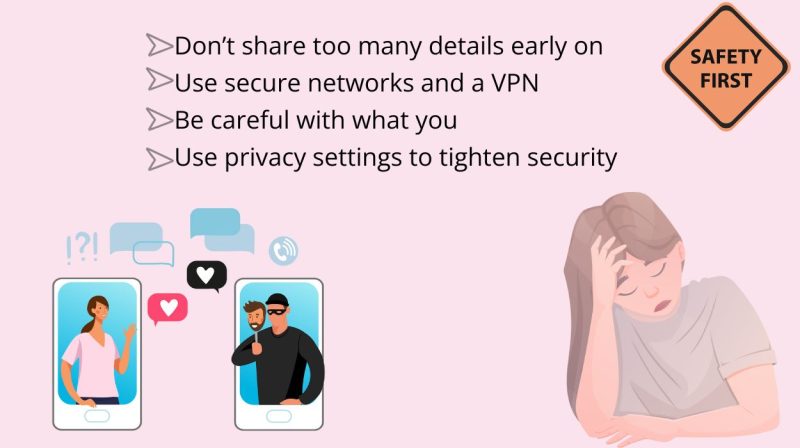
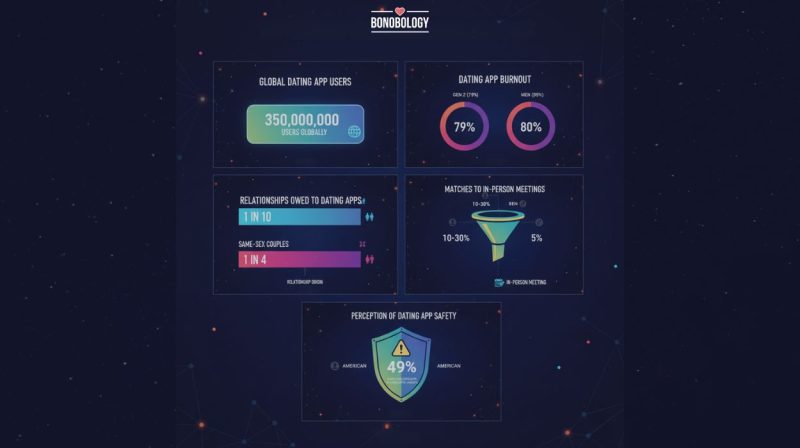
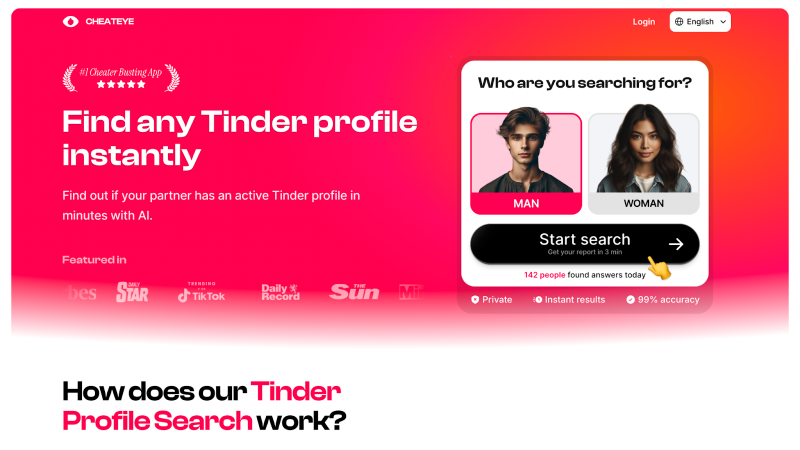
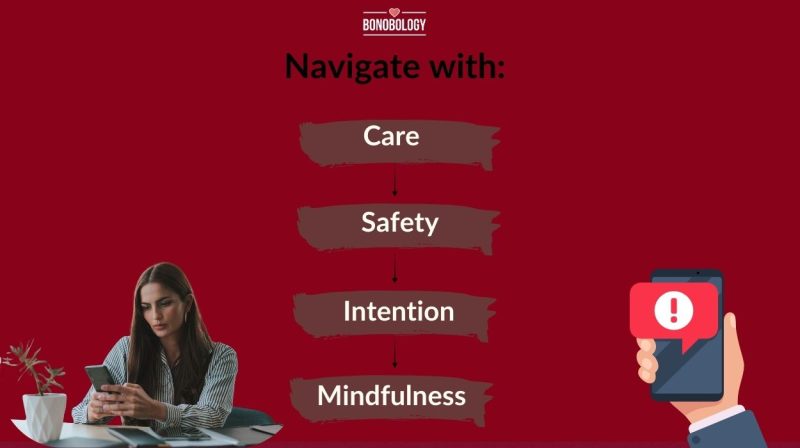


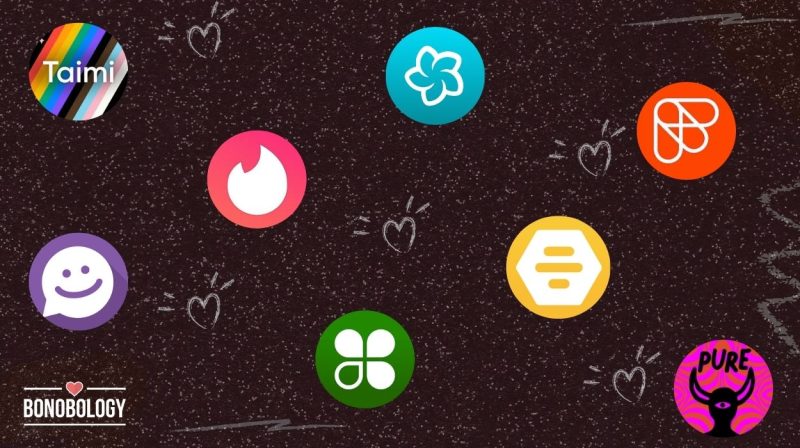

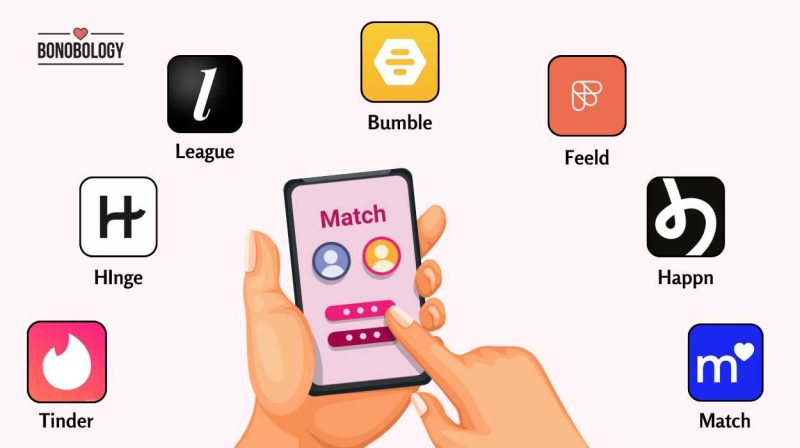

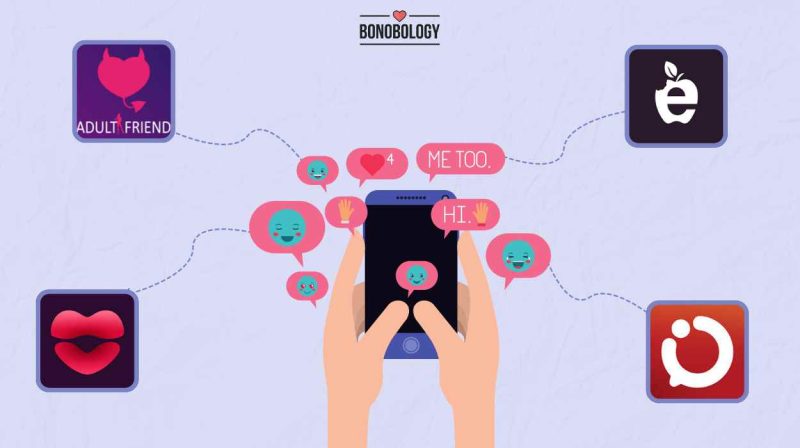

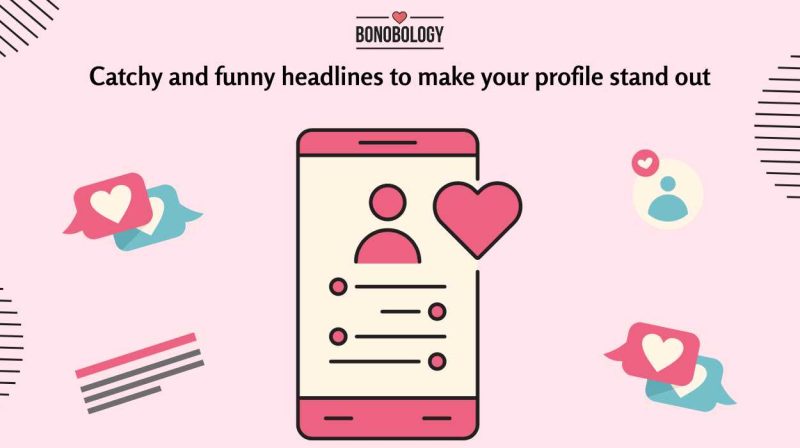
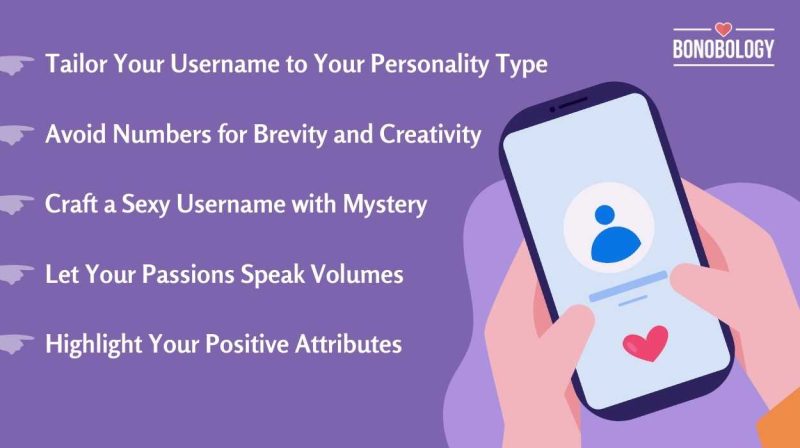
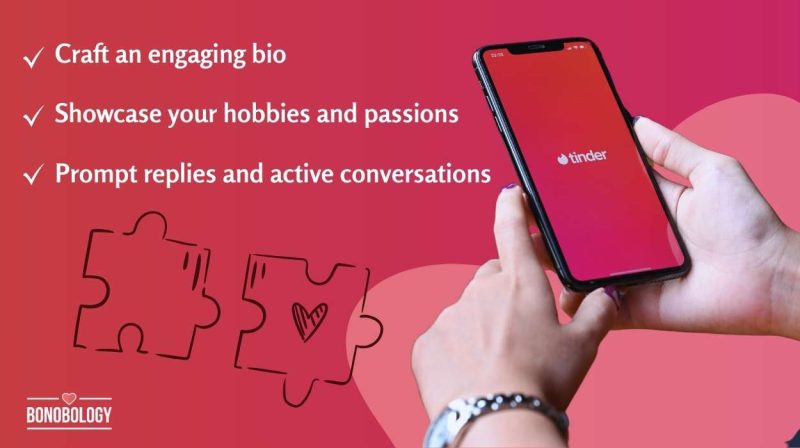



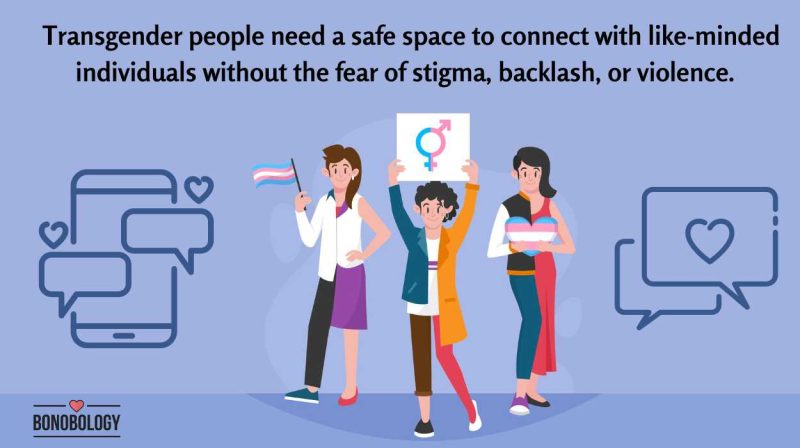

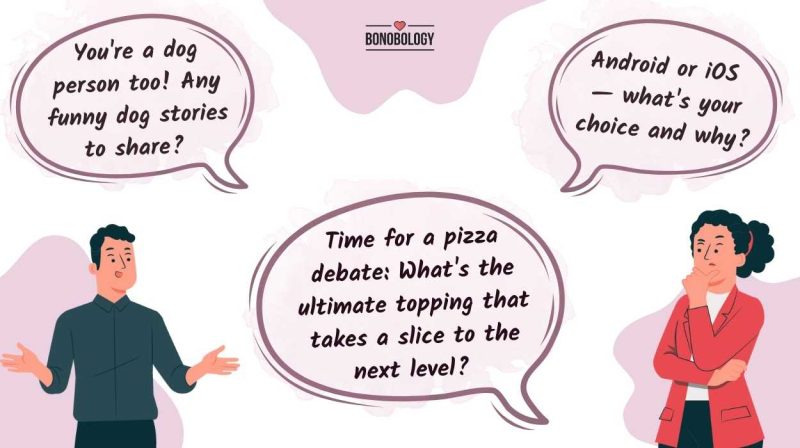
Featured
The State Of Online Dating: What Dating Apps Statistics Say (2025)
Your Go-To Guide for Finding Profiles on Tinder
10 Essential Online Dating Tips For Women
7 Catfishing Apps in the Dating Sphere-WATCH OUT!
13 Best Anime Dating Sites And Apps For Otaku Singles In 2025
21 Best Hookup Apps For Those Looking To Get Laid
How To Text A Girl For The First Time: 15 Tips And 75 Examples
15 International Dating Sites — Broaden Your Search For Love
15 Real Mature Female Dating Profile Examples
15 Best Dating Apps For Cheating | 2025
❤️ Meaning From A Girl—5 Interpretations And How To Respond
Looking For The Perfect Headline For Dating Site? 200+ Ideas
200+ Ideas For A Username For Dating Site — Set Yourself Apart
10 Actionable Steps To Increase Tinder Matches
13 Genuine Tips To Help You Slide Into Someone’s DMs
65 Best Instagram Pickup Lines To Start A Conversation
How To Find A Millionaire To Date: 10 Ways To Attract A Millionaire Man
9 Best Trans Dating Apps And Sites: Top Expert Picks
50 Incredible Responses To The “Dating Me Is Like” Hinge Prompt
100 Best Hinge Conversation Starters To Get You To The Talking Stage